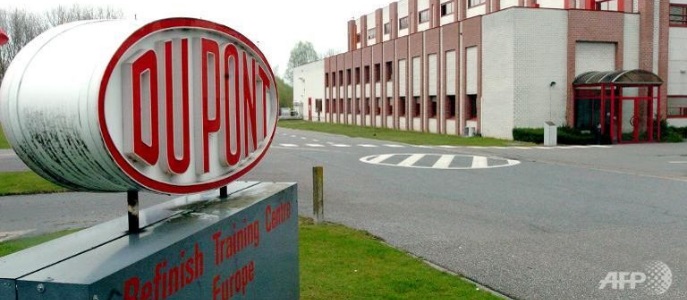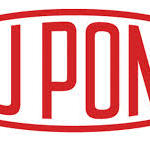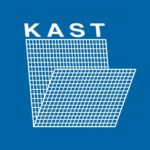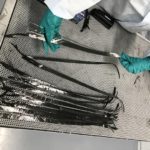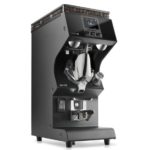The US government ordered South Korean industrial materials group Kolon Industries on Thursday (Apr 30) to pay US$360 million over the theft of secrets from DuPont on making its Kevlar body armour fabric.
Kolon also agreed in a separate deal to pay EI DuPont de Nemours & Co. an unspecified sum to end six years of litigation, during which DuPont had won a US$920 million award in 2011 that was then annulled on appeal last year.
The Department of Justice said Kolon agreed to plead guilty to one count of conspiracy to steal trade secrets in the federal court in Alexandria, Virginia. The company was sentenced to pay US$85 million in criminal fines and US$275 million in restitution to DuPont.
Between 2006 and 2009 Kolon paid former DuPont employees to obtain internal documents on its high-strengthKevlar synthetic aramid fibre. Known for its use in body armour, Kevlar also has applications in fibre optic cables, spacesuits, tires and other industrial products.
A jury in 2011 awarded DuPont the huge US$920 million damages award, but an appeals court overturned that in April last year, saying the lower court had abused its discretion.
Kolon had maintained its innocence, saying it had developed its own aramid fibre and had possessed only publicly available information on Kevlar.
The case was set for retrial, but the settlement reached between the two companies on Thursday resolved the issue, DuPont said. “The financial terms of the settlement include up-front and ongoing payments to DuPont. Further terms and conditions of the settlement are confidential,” the company said.
US Assistant Attorney General Leslie Caldwell said in a statement that protecting US corporate secrets is crucial for economic competitiveness.
The Justice Department “is committed to ensuring that foreign companies, like Kolon Industries, cannot escape the reach of the criminal justice system when they have conspired to steal the results of American ingenuity and our companies’ intellectual property,” she said.


